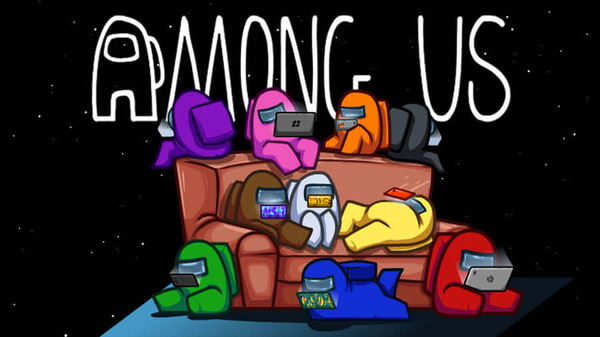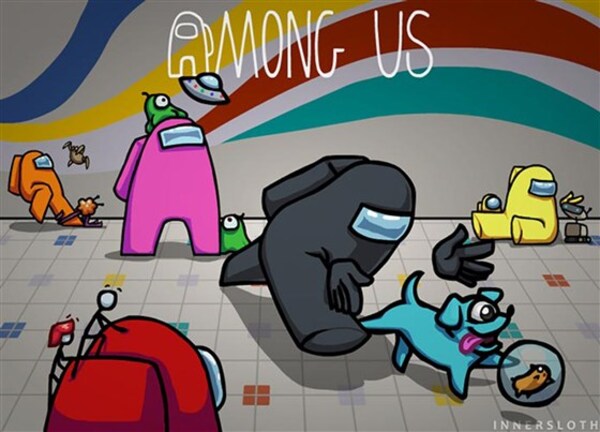Popular Now
Among Us, a popular multiplayer social deduction game, has garnered immense attention since its surge in popularity in 2020. The game is based on players working together to complete tasks on a spaceship or alien base while secretly trying to identify an imposter or avoiding detection as one. However, as Among Us became more mainstream, it also attracted a problem that plagues many online multiplayer games: cheating. In this article, we will delve into the issue of cheating in Among Us, exploring how it manifests, its impact on the community, and potential ways to address it to preserve the integrity and enjoyment of the game.
Cheating in Among Us: A Growing Concern
Cheating is not new to multiplayer games, but in Among Us, it’s particularly detrimental due to the game's reliance on deception and trust. Players are expected to communicate, strategize, and observe one another carefully to identify the imposter. The game’s fun comes from the social interaction, and cheating undermines that experience. Whether through the use of hacks, sharing information between crewmates, or ghosting during rounds, cheating has become a significant issue.
Players resort to cheating for various reasons, from the desire to win at all costs to a lack of interest in the strategic elements of the game. As the game continues to grow, developers are facing pressure to find ways to mitigate these issues and restore fairness to the gameplay. This has led to debates within the community about how best to combat cheating while maintaining the spirit of the game.

The Different Types of Cheating in Among Us
Cheating in Among Us can manifest in several forms, each affecting the game in unique ways. The most common forms include:
-
Stream Sniping: This occurs when players watch a streamer’s broadcast to gain an unfair advantage. By knowing the identities of other players, stream snipers can easily identify the imposter or sabotage the crewmates' efforts.
-
Using External Software: Some players resort to using cheat programs that give them an unfair advantage. These cheats can range from revealing the locations of other players to being able to perform actions like teleporting or seeing through walls.
-
Meta-gaming: Meta-gaming is a term used to describe players who share information with others outside of the game, such as through private chats or social media, in order to manipulate gameplay. This behavior can skew the dynamics of the game and make the experience less enjoyable.
-
Ghosting: In Among Us, when a player is eliminated, they become a "ghost" and can continue to observe the game. Ghosting refers to a scenario where eliminated players communicate or share information with active players, undermining the game's strategic elements.
Stream Sniping: The Most Disruptive Form of Cheating
Stream sniping has become one of the most prominent forms of cheating in Among Us, particularly due to the rise of popular streamers and YouTubers who play the game live. Stream snipers can watch the stream to see who the imposter is, often leading to frustrating and unfair gameplay for both the streamers and other players involved.
The problem with stream sniping is its impact on the trust between players. Among Us relies heavily on social deduction, and the element of uncertainty is what makes the game exciting. If players can gain an advantage by knowing who the imposter is in advance, the entire foundation of the game is compromised.
Impact on the Community and Player Experience
Cheating in Among Us has had a significant impact on the player community and the overall experience of the game. Many players have expressed frustration with the prevalence of cheating, particularly when playing in public lobbies. The lack of control in these environments has made the experience feel unbalanced and unfair for those who want to enjoy the game without external interference.
When players encounter cheaters, the feeling of accomplishment and satisfaction from a legitimate win is diminished. Additionally, repeated cheating incidents can cause players to leave the game or avoid playing in certain lobbies, leading to a reduced player base and a negative reputation for the game.
Why Cheating Happens: Exploring Motivations
Cheating is a pervasive issue, and understanding why it happens is essential to addressing it. There are several reasons why players might resort to cheating in Among Us:
-
Winning at All Costs: Some players are motivated by a desire to win, regardless of the consequences. These players may feel that cheating is an acceptable way to achieve victory, especially in a game with no significant penalties for cheating in public lobbies.
-
Boredom and Frustration: In some cases, players cheat because they’re frustrated with the game’s mechanics or have grown tired of the game’s normal flow. They may feel that cheating is a way to add excitement or challenge to a game that has lost its appeal.
-
Anonymity in Online Play: Among Us, like many online games, allows players to remain anonymous, which can embolden them to cheat without fear of real-world repercussions. The lack of personal consequences encourages some individuals to engage in disruptive behaviors that they might not do in person.
-
Lack of Consequences: In public lobbies, the consequences for cheating are often minimal. Many players feel that they can cheat without facing any significant penalties or repercussions, leading to a culture of cheating within certain segments of the player base.

How Cheating Affects the Core Gameplay Experience
Cheating has a profound effect on the core gameplay experience of Among Us. The game relies on trust, communication, and the ability to deceive others, and cheating undermines these elements by introducing unfair advantages. When players use cheats, they disrupt the delicate balance that makes the game engaging. Here are some of the ways cheating directly impacts the gameplay experience:
-
Decreased Trust: Players begin to question the integrity of their fellow players when cheating becomes widespread. As a result, it becomes harder to trust other players during discussions and voting rounds, which ultimately detracts from the social deduction element of the game.
-
Increased Frustration: Players who encounter cheaters are often left feeling frustrated and helpless. These feelings can lead to a decrease in enjoyment, making players less likely to continue playing. Frustration can also turn into anger, leading to negative behavior or quitting the game entirely.
-
Loss of Fairness: The essence of competitive gaming is fairness, and cheating undermines this concept. A player who cheats has an unfair advantage over others, which creates an environment where true skill and strategy don’t matter. This loss of fairness directly impacts the enjoyment of the game.
Developer Response to Cheating: What Measures Are Being Taken?
Innersloth, the developer of Among Us, has been aware of the cheating problem and has made efforts to address it. While the studio is a small indie company, it has been proactive in releasing updates that tackle cheating. Some of the measures implemented include:
-
Anti-Cheat Measures: Innersloth has implemented anti-cheat systems that can detect and block players using third-party software to gain an unfair advantage. These systems help ensure that cheating is minimized, though they are not foolproof.
-
Reporting System: Among Us includes a reporting feature that allows players to report cheaters or disruptive behavior. This system helps Innersloth identify problem players and take action, though it still relies on the community to flag inappropriate behavior.
-
Private Lobbies and Friends-Only Play: Encouraging players to play in private lobbies with friends is one of the most effective ways to prevent cheating. This system minimizes the risk of encountering cheaters by limiting gameplay to trusted individuals.
-
Community Engagement: Innersloth has remained active in engaging with the Among Us community, gathering feedback on the issue of cheating and implementing changes based on that feedback. The developer’s openness to suggestions has helped improve the game’s overall quality.
Long-Term Solutions: Will Among Us Ever Be Cheating-Free?
While Innersloth has made progress in combating cheating, the reality is that Among Us will never be entirely free of cheaters. As long as the game remains popular, there will always be players who attempt to exploit the system. However, there are several strategies that can help reduce the prevalence of cheating and create a better overall experience for players:
-
Stronger Anti-Cheat Systems: Continuing to develop and implement more advanced anti-cheat systems that can detect new cheating techniques will be crucial to maintaining the integrity of the game.
-
Incentivizing Fair Play: By rewarding players for playing fairly or punishing cheaters with temporary bans or penalties, Innersloth can foster a more positive and honest community.
-
Community Involvement: Maintaining open communication with the player community will be essential to identify new cheating techniques and address concerns as they arise. A proactive approach will help minimize the impact of cheating on the game’s enjoyment.

Conclusion
Cheating in Among Us has become a significant issue, undermining the enjoyment of the game for many players. While the developer has taken steps to address the problem, there is still much work to be done to ensure a fair and enjoyable experience for all players. Cheating not only disrupts the core gameplay experience but also damages the trust and sense of community that make Among Us so special. By continuing to improve anti-cheat systems, engaging with the community, and fostering a culture of fair play, Among Us can move towards a more balanced and enjoyable future.


















